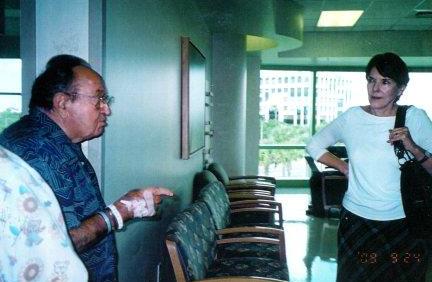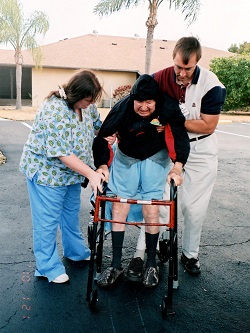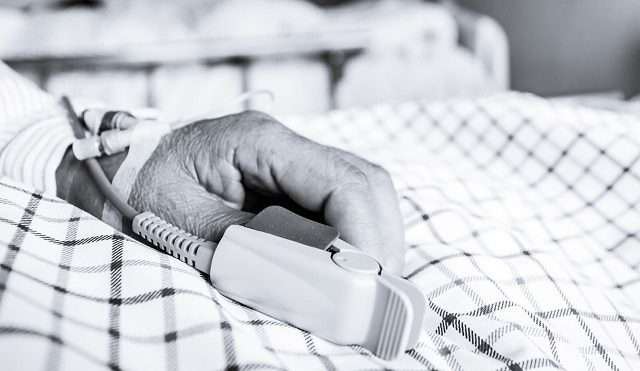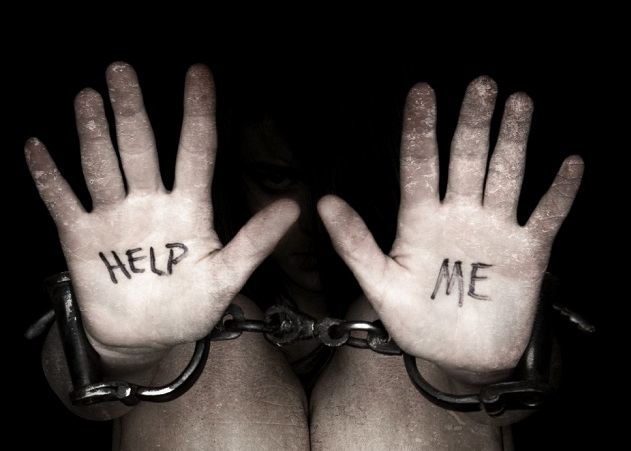Florida Statute Sec. 787.06 – Human Trafficking
1. (c) The [Florida State] Legislature finds that traffickers use various techniques to instill fear in victims and to keep them enslaved. Some
traffickers keep their victims under lock and key. However, the most frequently used practices are less obvious techniques that include isolating
victims from the public and family members; confiscating … identification documents; using or threatening to use violence toward victims or their families; telling victims that they will be imprisoned … if they contact authorities; and controlling the victims’ funds by holding the money ostensibly for safekeeping.
(d) It is the intent of the Legislature that the perpetrators of human trafficking be penalized for their illegal conduct and that the victims of trafficking be protected and assisted by this state and its agencies.
“The Legislature finds that human trafficking is a form of modern-day slavery,” which it is, and it proliferates in the Sunshine State, where elders have amassed in numbers greater than in any other state. Holding scores of thousands of elders in guardianship, the State of Florida reaps at least many millions of dollars from its Wards every year and from desperate families trying to release their parents from state control.
How does guardianship qualify as “human trafficking”?
This article does not allege that every guardianship, whether in Florida or any other state, meets the criteria of human trafficking; however, many, if not most public and professional guardianships match most of the elements of trafficking, specifically:
- The victims or Wards are kept under lock and key.
- They are transported away from their homes without their consent and oftentimes without their comprehension of where they are being taken or for what reason and for what period of time.
- Isolation is a key element of the typical lives of state Wards, including absolute or near-total separation from family and participation in public activities.
- Identification documents, whether driver licenses, Social Security cards, or passports, are routinely taken from elders too feeble to use vehicles or travel anywhere.
- Verbal attacks, incarceration, and Baker Act imprisonments are part and parcel of the tactics used against both Wards and their families attempting to visit or comfort them during the traumas of guardianship.
- Use of punitive measures against Wards and their families is rampant when reports against guardians are made to the authorities.
- The key element of guardianship abuse is the controlling of funds belonging to the Ward, most often spent on extravagant attorney and guardianship fees, frequently totaling hundreds of thousands of dollars in a year or so of forced guardianship.
- Regardless of the laws in place in every state, Wards are trafficked by professionals who fear no consequences or penalties for their illegal conduct.
Although unlisted as an element of trafficking, the widespread use of physical and chemical restraints is common to both guardianships and trafficking. Thus, guardianship becomes trafficking when helpless elders are restrained by pill mills and tethers, such that they are either unable to process sensory input due to excessive pharmaceuticals or unable to move themselves as normal human beings do day-in and day-out.
I am witness to every one of the elements of trafficking used upon my Father, Al Katz, an 89-year-old Holocaust Survivor, suffering guardianship abuse in Manatee County/Bradenton, Florida, where he vacationed over the years. To begin at the end of the list, Dad was tethered to many beds in various institutions and simultaneously injected with Haldol, a narcotic that induced horrific flashbacks to the Holocaust and filled my Father with overwhelming fears.
Mind-altering pharmaceuticals provide a steady pill mill stream in virtually every professional guardianship, causing once-alert Wards to exhibit what might be called the “foster care stare” or drooling and inattentive behaviors. Indeed, my Dad’s pharmaceutical menu encompassed multiple doses of narcotics and psychotropics each day, despite the absence of any medical conditions more dire than very mild heart congestion and minimal arthritis.
The Baker Act is a widely-used punitive measure incorporating the trafficking elements of physical restraints, pill mill pharmaceuticals, and lock-and-key isolation of Wards from the public and their families.

Holocaust survivor Al Katz confronts Ashley Butler.
Via the Baker Acting of Wards into forced institutionalizations, Wards at least temporarily lose all of their civil rights of freedom of expression and movement. In Dad’s case, his forced institutionalization entailed total isolation from the public and family for three weeks, while he was secluded in the desolate basement of a metropolitan hospital behind layers of steel, locked doors and guards posted, as if he were a maximum security prisoner but literally with fewer rights afforded to him. Held under lock and key by the State of Florida, Dad had been taken from his home and kept at a site unknown to him and to his family week upon week, re-living terrifying experiences of the Holocaust.
Identification documents were taken from Dad and ultimately returned after months of requests to his guardian. Even Dad’s car was taken by his guardian and hidden at an unknown location for approximately eight months. Other valuable possessions, such as a Da Vinci watch, possibly worth $70,000, were taken into the custody of the guardian and never returned to Dad or his estate either before or after he passed
away.

Holocaust survivor Al Katz while in guardianship.
In countless guardianship cases across the United States, family members are forbidden to visit their aging parents and are arrested for their attempts to do so, whether on Mother’s Day, Christmas, Thanksgiving, birthdays, or the Jewish High Holy Days. In states where elders are not safe from heinous crimes, their own beloved children are zealously prosecuted for bringing their parents cards and flowers on special occasions.
This is indeed trafficking, when the isolation of elders is enforced by the prosecutions of children trying to visit them in institutions of imprisonment.
Those children who are allowed to visit their parents are frequently court-ordered to pay facility staff to supervise their visits at the cost of $100 per hour or more. Missed visits or missed minutes can never be made up, and little moms are thereby left lonesome if their sons or daughters cannot afford to pay exorbitant sums for visitation rights, miss their flights, or get trapped in traffic delaying their arrivals. In Escambia County, Florida, three doting sons are routinely issued court orders entailing pages of rules and restrictions detailing how and when they can visit their mom, exactly what they are permitted to say to her, and imposing hefty charges for their supervised visits.
Whenever the three sons have reported guardian misconduct to the authorities, the retribution against them has been swift, and threats are constantly made against the Ward’s family members, punitive motions are filed in court, and the sanctions are granted via court orders. For years, the sons have been forced to fight in court to see their own mother, as her health declines from loneliness and constant anxiety and her assets and theirs dwindle.
Every wealthy Ward is a deluge of income to the State of Florida, feeding the guardianship industry through vast payments to lawyers, guardians, pharmaceutical companies, medical practitioners, social service agencies, nursing homes, courts, and hospitals. The money just rocks and rolls into a massive feeder system until the Wards and their families literally change economic status from upper to barely middle class or beneath. Homes are lost, and fortunes are found – by the trafficking community.
In the case of Ida Pavioni, a wealthy Italian spinster living very well for years in Manatee County, Florida, with her devoted niece, also wealthy, all of their combined real properties and liquid assets were consumed by the same guardian who forcibly put Al Katz, my Dad, into isolation and lockdown, hid his car, and removed boxes of his possessions from his home, never to be returned. Likewise, Ida’s prize large nativity scene, made by a renowned Italian sculptor, was taken by the same guardian, allegedly to be donated to an undisclosed “non-profit” organization rather than to her beloved niece.
In four separate lawsuits, Ida’s niece was sued by the guardian until she met financial doom and became homeless. After years in guardianship and endless unsuccessful court battles by Ida’s niece to be able to visit her aunt, Ida died lonesome and lower class.
The loathsome system that leaves Wards lonesome is a viable white collar avenue for trafficking of elders for profit in modern-day human slavery, in which the wages of Wards earned over their lifetimes are gleaned through gluttony violating the consensus and conscience of society.




